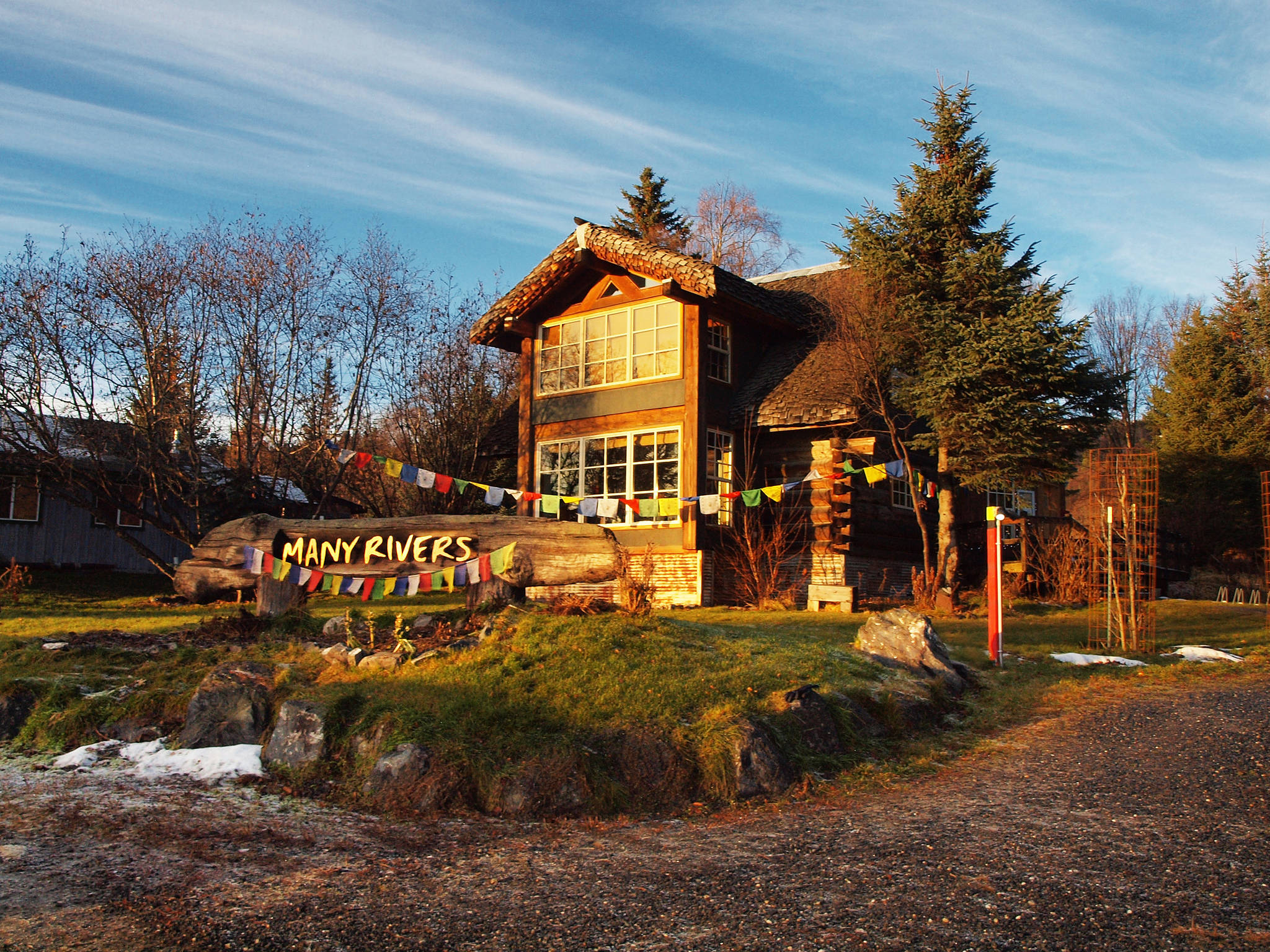Many people are familiar with the brain-drain effect: the scattered, glazed over numb feeling, the lack of focus and concentration. Ever wondered if there are tools to avoid those symptoms? Trish Herrmann offers a six-week “Healing Meditation Toolkit for These Times” course to address just those issues.
Set in the warm and spacious Many Rivers studio, the class is a mix between meditation instruction and practice.
“The purpose and intent of the series is to share a variety of tools and practices that have really helped me learn to be more grounded and present in my everyday life amidst so much going on in our stimulating world,” Hermann said. “The classes offer several different meditation and healing techniques that are applicable in our daily lives and that we can pick and choose to practice what works best for us individually.”
Herrmann is a licensed practitioner through the School of Meditation and Healing in California, certified through the School of Acceptance Based Spiritual Healing in Minnesota, and holds an individualized bachelor’s degree in biology, psychology and outdoor leadership. She also brings some of these practices out into nature with people as a naturalist/hiking guide.
She offers her classes at Many Rivers as a joint partner and contributor to the overall vision for the future of the studio; creating a more peaceful, integrated culture from the inside out. With longtime friend Anna Raupp, the studio’s director, their vision for Many Rivers is holistic, aiming to incorporate more meditation into the studio’s offerings.
“We’ve been working to refine our intention as a studio,” Raupp said. “With a recent revamping of vision and mission, our purpose (is) refreshed and very dynamic. The meditation and healing toolkit series, is very much in line with this so it has a synchronizing effect.”
The mission of Many Rivers is to strengthen the community and promote individual resilience through compassionate and high quality instruction in practices of yoga, meditation, dharma and healing arts.
Hermann as been offering a free introductory class before her six-week series, which must be taken consecutively as they build upon one another. Some things taught in the intro class are basic tools for centering and grounding.
“Some tools that are applicable to every person are to practice being grounded in our sense of self and grounded in the earth. It is so helpful in our every day lives to have an understanding of how to practice being centered in our self and know our boundaries,” Herrmann explained.
The theme of her series is to offer daily skills and tools that we can individualize and utilize in these changing times. By “these changing times,” she refers to the modern age: the modern, digital, information superhighway, media saturated age.
Recognizing that no one is going to renunciate all cell phones or computer screens or highways, and that people must adapt to these times, the class offers tools for becoming a better version of oneself “in these fast changing times.”
“The point of the series is to be really real about the terms of what life is right now, and navigate that effectively,” Raupp said.
Herrmann’s offering combines meditative techniques and ways of interacting with ourselves and others that encourage presence.
“Presence is a big part of the practice,” she said. “Being present to all parts of ourselves without judgment is a powerful medicine that creates organic change.”
A form of acceptance-based healing, the tools aim to empower people to be more present, compassionate, and able to deal with any feelings or emotions.
“When you’re comfortable with yourself and clear within your own boundaries, it gives other people permission to be who they are.” Herrmann said. “When you practice clear energetic boundaries, you have the capacity to be lot more open hearted and present to yourself and the rest of the world around you.”
From acceptance, from not striving, coming from a neutral place, people can navigate much easier.
“A beautiful part of these practices and tools is that we are reminded that we are spiritual beings in a human body,” Hermann said. “How amazing is that? We can practice ways to integrate and nourish our being in all facets of our life and not just on a meditation cushion or in a yoga class. These practices have the capacity to be liberating and empowering as we learn to take back our responsibility for ourselves. In my experience I have found a tremendous amount of freedom in this alone.”
Though they talk about spirituality, a message of openness runs deep through the mission of Many Rivers.
Raupp explained: “It’s important to learn from other approaches and listen to each other so we can navigate change together.”
Herrmann and Raupp agree that one of the most gratifying parts of the series is watching the change that occurs within the room.
“You can feel people come in, unsure of what to expect, and as the class goes on you can feel the energy of the room shifting and deepening,” Herrmann said. “It’s very circular, there’s a lot of interaction and sharing in the class so that people can learn from each other; in many ways the circle is the teacher.”
A feeling of friendship is created between practitioners that is reminiscent of older ways of being and socializing. It’s important to feel those bonds of community in a peaceful integrative way, and to create a new model for how we spend time together.
As Raupp said, “We really need to support each other right now.”
To learn more and to sign up for Herrmann’s next series, visit www.manyriversalska.org.
Jennifer Tarnacki is a freelance writer living in Homer.


